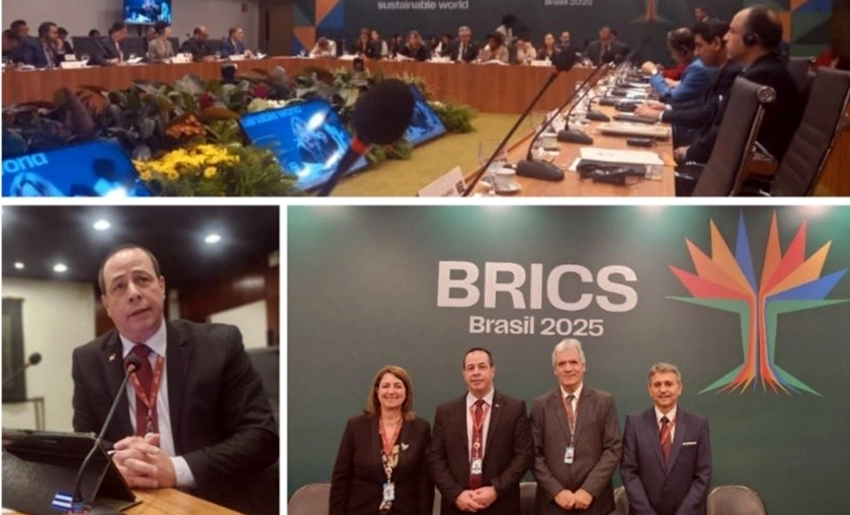José Angel Portal Miranda, Minister of Public Health of Cuba, reaffirmed his country’s willingness to actively contribute to BRICS countries. In areas such as vaccine research and development, addressing infectious diseases, and joint regulation of medical products.
During his intervention on Tuesday at the XV Meeting of Health Ministers of the group (initially composed of Brazil, Russia, India, China, and South Africa). The Cuban official emphasized that Cuba, with associate member status since October 2024, is joining “with deep respect and commitment.”
According to today’s report from the Ministry of Public Health of Cuba (Minsap) on its website. Portal Miranda stated that the BRICS represent an alternative for dialogue, collective action, and sustainable development of the Global South.
In this regard, he proposed to strengthen scientific exchange, boost technological sovereignty. Advance digital governance, and promote the ethical application of Artificial Intelligence in the field of Health.
During his speech at the event, which took place in Brasilia, the Brazilian capital, the Cuban minister recalled that the development achieved by the Pharmaceutical and Biotechnological Industry of the Caribbean nation. It has allowed to consolidate research, development, production, and marketing capabilities that are present in many BRICS countries. Thanks to the strengthened alliance between the health, scientific, and productive sectors.
He also assured that the island maintains health cooperation links with 17 members or partners, through inter-institutional agreements signed in various areas. Demonstrating our commitment to collaboration for mutual benefit. As part of our international cooperation, he stated, currently more than 23 thousand Cuban health professionals provide services in 56 nations.
The Cuban official referred to the characteristics that distinguish the National Health System in Cuba, emphasizing that it is public, free, universal, with a preventive approach and a vision of ‘One Health,’ whose development has allowed for health indicators comparable to those of many developed countries.
Portal Miranda highlighted the urgency of addressing health challenges through mechanisms of inclusive and solidarity-based cooperation. Ensuring resilient, effective, and people-centered health systems, capable of ensuring universal health coverage and compliance.
The official delegation from the largest of the Antilles to the meeting was also made up of Mayda Mauri Pérez, president of BioCubaFarma. Dr. Néstor Marimón Torres, director of International Relations of the Ministry of Public Health; and Adolfo Curbelo Castellanos, the Cuban ambassador to Brazil.
With information from CNA
Translated by Aliani Rojas Fernandez
- Installation of Photovoltaic Systems in Rural Communities in Holguin - 19 de January de 2026
- 39th City Salon Opens in Holguin - 19 de January de 2026
- Habanos Festival Among Cuba’s Most Important Tourism Events - 19 de January de 2026

